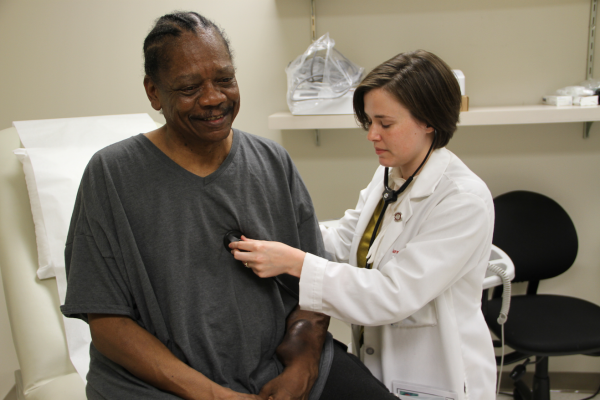
March 1, 2018 – Patients who were treated for breast cancer or lymphoma are more than three times at risk for developing congestive heart failure, compared with patients who did not have cancer. Congestive heart failure is when the heart muscle does not pump blood as well as it should. This research is being presented at the American College of Cardiology’s 67th Annual Scientific Session.
The risk of increased heart failure occurred as early as one year after cancer diagnosis, but continued 20 years after patients completed cancer treatment, Mayo Clinic researchers found. Overall, 1 in 10 cancer patients developed heart failure by 20 years after cancer diagnosis, they discovered.
“The majority of patients do not develop heart failure, but our research helps us recognize the factors associated with it and the importance of appropriate heart care following cancer treatment,” says Carolyn Larsen, M.D., a Mayo Clinic cardiologist who is the first author. “Our research suggests that periodic cardiac imaging to monitor for heart damage may be needed for some cancer patients even if they have no signs of heart damage initially after chemotherapy. Additionally, it emphasizes that working to live a heart-healthy lifestyle is important for cancer patients and survivors to reduce the overall risk of heart disease.”
Using data from the Rochester Epidemiology Project, researchers retrospectively tracked heart failure cases in 900 breast cancer and lymphoma patients and 1,550 noncancer patients in Olmsted County in Minnesota from 1985 to 2010. Patients were well-matched for age, gender and heart disease risk factors, such as diabetes and high blood pressure.
Researchers focused on patients who were likely prescribed a chemotherapy drug called an anthracycline, such as doxorubicin, which is known to cause heart damage in some people by changing the heart muscle’s DNA.
Research also revealed:
- Cancer patients were three times as likely to develop heart failure within five years of their diagnosis. At 20 years after treatment, patients were still twice as likely to have been diagnosed with heart failure.
- About 7 out of every 100 cancer patients developed heart failure during the median follow-up of 8.5 years.
- Of those with cancer, patients who also were diabetic or received high doses of a type of chemotherapy called an anthracycline had an even higher risk for heart failure.
“We discovered that diabetes also was a strong risk factor, but we don’t know what happens in the body that makes heart failure more likely in these patients,” says Hector Villarraga, M.D., a Mayo Clinic cardiologist who is the senior author. This discovery points to the need for further research, he says.
Following treatment, breast cancer and lymphoma patients should be assessed yearly for signs and symptoms of heart failure, Larsen says. Heart failure signs and symptoms include shortness of breath, fatigue, feelings of weakness, swelling in the legs or abdomen, irregular heartbeat, rapid weight gain, and pressure or heaviness in the chest while lying flat.
Larsen will present the study, “Short and Long Term Risk of Congestive Heart Failure in Breast Cancer and Lymphoma Patients Compared to Controls: An Epidemiologic Study,” on March 10 at 9:30 a.m. EST at the American College of Cardiology’s 67th Annual Scientific Session in Orlando, Florida.


 July 31, 2024
July 31, 2024 









